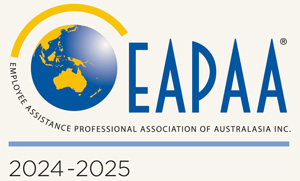Are you willing to share your feelings with others?
Do you feel as though friendships and other relationships only lead to disappointment and hurt? Did something happen that has made you unable to trust others?
Emotional and physical abuse, personal betrayal, ongoing belittlement and victimisation, or the loss of a loved one are events that may lead to loss of trust in others. Distrust is often a method of self- preservation, but when it begins to close you off from the world, it becomes a hindrance to your well- being.
Regaining your trust in others takes time and patience. Try these techniques to start the process:
- Start small
- Seek to make small personal connections with people around you. Share small but not overly intimate details about yourself. Make a mental note each time someone else shows trustworthy behaviour toward you.
- Compartmentalise
- Different people are sometimes uniquely suited to play different roles in your life. For instance, you may only be comfortable discussing work frustrations with one friend, and your home life with another.
- Spread your trust across multiple relationships and social circles to minimise any negative effect on you if trust is broken.
- Communicate
- Be up-front about your needs and expectations, and don’t be too quick to abandon a relationship due to a perceived slight or breach of trust.
- Forgive
- No one is perfect. Healthy, trusting relationships require forgiveness. Distinguish small mistakes, breaches of trust, or acts of thoughtlessness from big ones. Be careful to recognise the difference between destructive patterns and isolated instances of hurtful behaviour.
- Love yourself
- If you’ve been systematically criticised and belittled in the past, you may have trouble opening up for fear of rejection.
- Shut down negative mental scripts that serve to destroy your confidence by recognising when they occur and replacing them with positive affirmations. Make a list of your positive attributes and refer to it whenever you begin beating yourself up. Remember that you have something to offer.
- Be open to therapy
- Some wounds run so deep that healing requires the assistance of a mental health professional. There’s no shame in seeking professional help for your problems. It may be easier to open up to someone with whom you have no personal relationship.
- Your Instep Employee Assistance Programme offers free counselling sessions with confidential enrolment.
- Reciprocation
- Risk taking is a part of life. All human relationships carry with them the potential for harm, but the potential rewards are so much greater. In relationships, as in all things, you have to give to receive. Choosing your relationships carefully is an effective way to minimise the risk of emotional or physical harm.
- Give more weight to actions than words. In any healthy relationship, each individual is strengthened and made better by the other.
You don’t have to face life alone. By starting today with slow, incremental steps, you can again establish trusting and supportive relationships with others.






